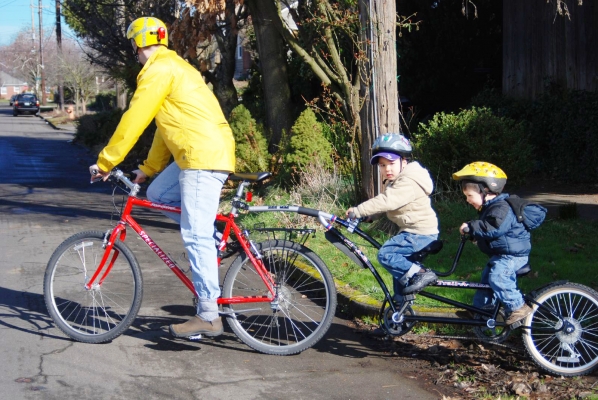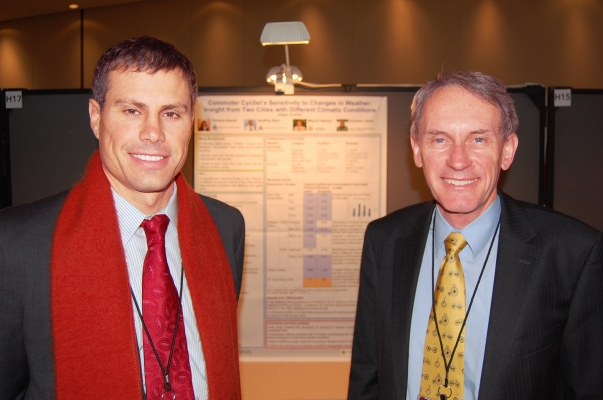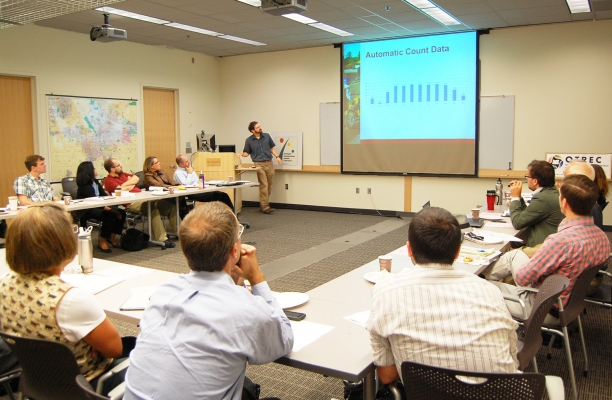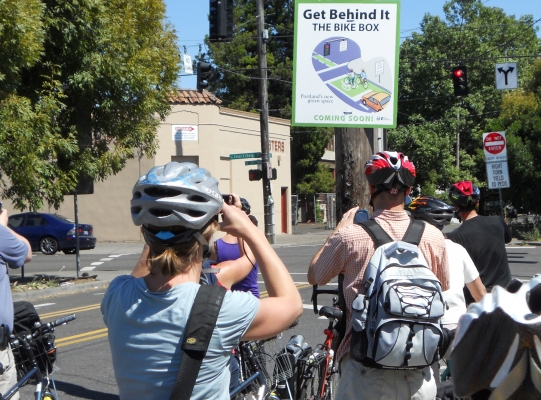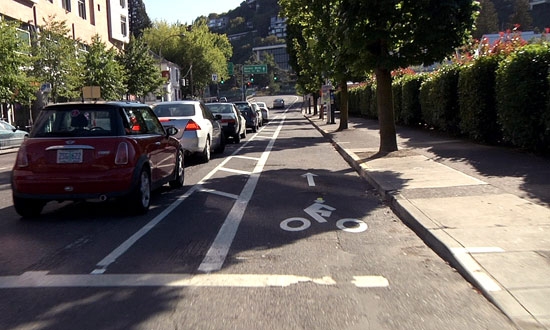When people talk about Portland, they talk about weather and bicycling. Judging by the Transportation Research Board annual meeting in Washington, D.C., researchers are looking into the same two things.
Bikes, of course, draw more interest at a transportation conference than in other circles. Here, Portland continues to draw attention: A single day’s poster session featured no less than seven papers that use Portland as a bicycle research laboratory.
The examination of bicycling and weather drew research looks from around the continent. A paper with authors from OTREC and the Institute of Transport Studies at Monash University, Australia, looked at how well different factors, including weather, affect bicycling in Portland, Ore., and Brisbane, Australia.
Light rain, for example, had little effect on bicycling in Portland, said Portland State University’s Miguel Figliozzi, one of the paper’s authors. The drop in ridership was four times as great in Brisbane on drizzly days.
“We’re used to light rain, so the difference is very small in Portland,” Figliozzi said. “In Australia, maybe they are not used to that.”
Geoffrey Rose of Monash University, another author on the paper, said the paper could help transportation decision makers understand and respond to effects of weather on active transportation, particularly as they deal with climate change. “This helps to understand the effects (of weather) on cycling today and what we can do to perhaps...
Read more
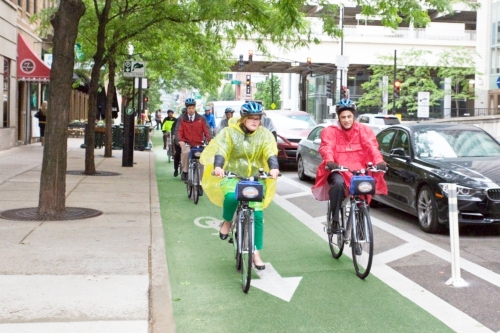
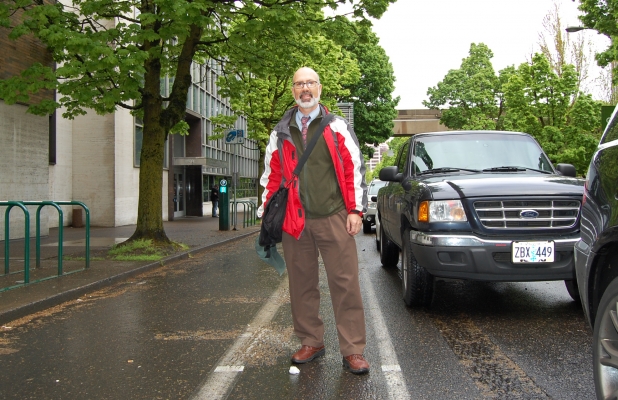
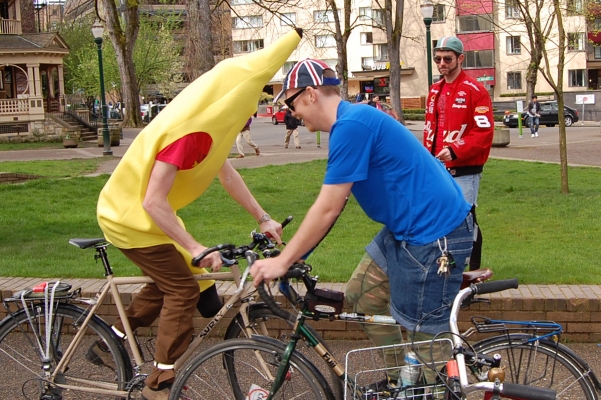
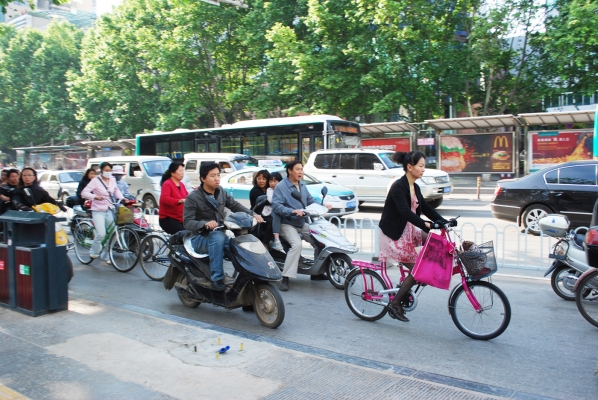
.jpg) Kunming is facing tremendous growth pressures and increasing motorization. Between 1995 and 2011, car ownership went up from 20 cars per 1,000 people to 150 per 1,000. As a...
Kunming is facing tremendous growth pressures and increasing motorization. Between 1995 and 2011, car ownership went up from 20 cars per 1,000 people to 150 per 1,000. As a...